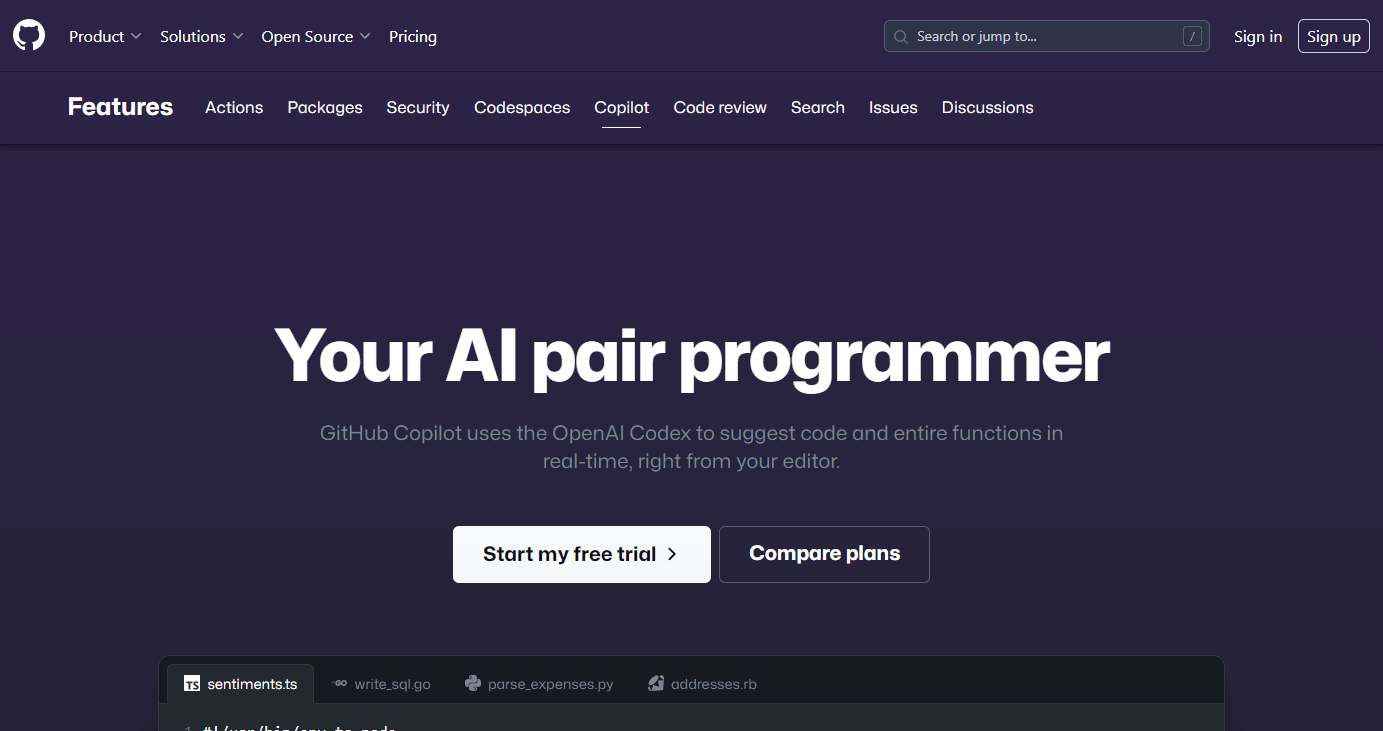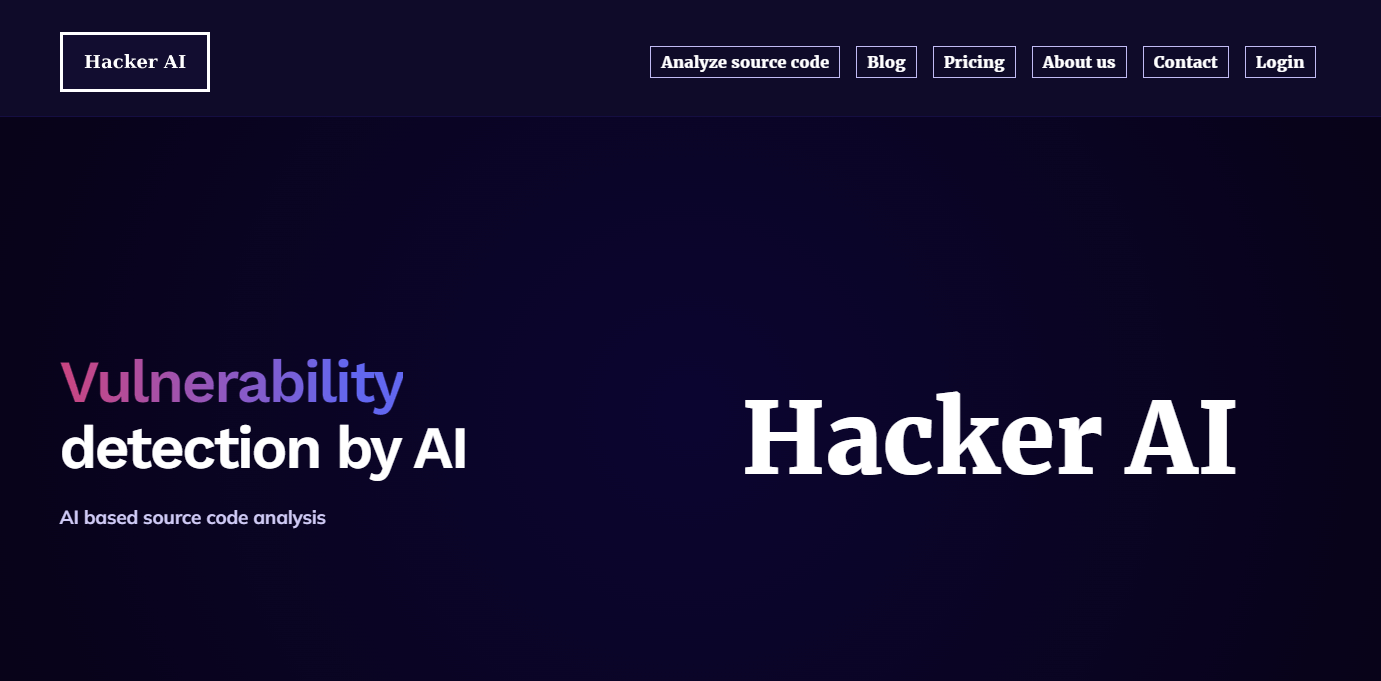AI Tools for Web Development: Insights From the Team
Artificial Intelligence (AI) is taking the world by storm. Spurred on by our AI workshop at the summer company gathering, the team decided to share some of the AI tools we’ve been testing out recently.
AI for SEO
We have been exploring how AI tools such as ChatGPT can help with Search Engine Optimisation (SEO), for example creating customised templates, doing competitor research, and content creation for social media to increase visibility on particular platforms such as LinkedIn.
Alex, for example, has been testing the OpenAI API with GPT-3.5 and GPT-4 to rewrite product descriptions to make them unique for SEO. The same tool generates a summary from the product description to be used for the page meta description. Each time the content is re-written, it keeps a note of the GPT version and the “prompt” used by Alex to create the content. With enough content, it’s then possible to use analytics to compare the search results ranking of AI generated content (and the specific API version and prompt used) versus human generated text.
Will and Tim have been using AI in digital marketing to help with generating keyword ideas through the use of Google suggestions and Bing AI. They start by taking Google Suggestions, which are based on frequently asked questions that people search for related to the term in question, for example in relation to ‘AI tools’:
Then they ask Bing AI to suggest some keywords for these Google suggestions and put the queries and keywords into a table.
“The suggestions from Bing AI prompts are useful”, says Will, “as they give us a better idea of what terms are being used across different industries, such as destinations, retail, leisure etc., and give us inspiration for other potentially relevant keyword terms and queries we can create.
“We then use keyword research tools such as Semrush and Google Ads Keyword Planner for these suggested terms to further investigate the traffic, Cost Per Click & search volume of the suggested terms.”
AI for Website Development
CoPilot

CoPilot is an AI tool that assists in writing code. Within the development team we’ve been using it to help with code completion and code suggestions, which has helped with productivity. The results vary, but it is easy to ignore it if it gives you an incorrect result.
Michael explains: “Essentially, as you are writing code it will give you suggestions; sometimes it may just be a single line, sometimes it will give you a complete section of code consisting of 20-30 lines.
“The nice thing about this tool is that it integrates in most code editors directly, so you don’t have to keep copying and pasting between your browser and code editor when using an online tool to generate code. It also reads sections of your code and suggests solutions based on your existing codebase.
“The best description is that it is like a really advanced autocomplete. This is a far stretch from writing all your code for you, but it helps in smaller ways by suggesting partial solutions that can be modified to get the result you are after.”
This Person Does Not Exist

The eye-catchingly named This Person Does Not Exist is an AI tool that generates an image of a random human face of a person who is not real. Michael uses the tool when he is developing website content, inputting the images of people that it generates as placeholders while he is waiting for actual content.
“I like using these images because if they did somehow slip into a production project, or if something from a staging site did somehow become publicly accessible we don’t need to worry about repercussions, since they don’t exist.”
AI image generators are getting more and more sophisticated. They could be helpful in automatically generating featured images for blog articles based on the article title or excerpt text.
PrivateGPT
PrivateGPT (or PrivateLLM) is the equivalent of ChatGPT but customised for the use of a specific organisation. Public large language models (LLMs) like ChatGPT and Google Bard, which are developed to have as much general knowledge as possible, have a lot of concerns around data leakage and answers that are irrelevant or incorrect because the data they are trained on is often of low quality. PrivateGPT, on the other hand, possesses specific knowledge and information for the users of the organisation.
We discussed this in a recent development meeting and Moz has been tasked to get a PrivateGPT setup for Infotex. We’d create and host our own language model (based on the open source project), which would be trained on our codebases and our internal ticket mangement system and CRM, the result of which would only be accessible to Infotex staff.
“We’re not sure how far this could go, but it’s conceivable that it could result in our CRM making suggestions of how to resolve an issue, or highlight where the same thing has been done before for other clients both in terms of support calls or new project stories. It could potentially even point our developers in the direction of where existing code can be found that we’re already using to resolve a similar need.” – Moz
AI for security
Hacker AI

Hacker AI identifies potential security vulnerabilities in source code that may increase risk of exploitation by hackers. We ran a recently onboarded client site through this and it reported one potential security weakness, but we traced this and it wasn’t actually a problem. Hacker AI missed a more obvious problem that Richard happened to spot during our manual review of the site.
“The actual findings were a little disappointing and largely similar to static code analysis tools, which have been around for a while, so at present we’re watching but not moving forward on this one” – Moz
Hexowatch
Hexowatch monitors a website to alert you of any changes that occur, to save having to manually monitor a website, which can be time consuming. They offer another similar tool, Hexometer, which monitors the health of a website.
Both of these claim to be using AI yet there is minimal indication of AI actually being a significant part of what they are doing. It’s possible AI is used as a commercial tool to bump the price of their services up. Matt and Moz concluded that the offering wasn’t particularly unique or worthy which is a pity as they initially looked promising.
AI into the Future
AI is rapidly developing – Jono suggests that one area to keep an eye on that could be really interesting is AI Avatar videos, such as The Digital People Platform. You can select an Avatar and then give it a script and it will read it out.
Katie has signed up to ‘There’s An AI For That’ to keep up to date via their regular newsletters about new AI tools.
The way AI develops now will shape our future drastically. In light of this, Ollie, our Digital Marketing Executive, has been researching the importance of using and developing AI in an ethical way, and the challenges this brings. Some resources you can read to learn more about the ethics of AI include GCHQ: The Ethics of Artificial Intelligence and the GOV.UK website Ethics and AI Guidance.
Ollie is also reading Scary Smart, written by the former CEO of Google, Mo Gawdat, about the actions we can take to ensure that the AI of the future is sustainable.



